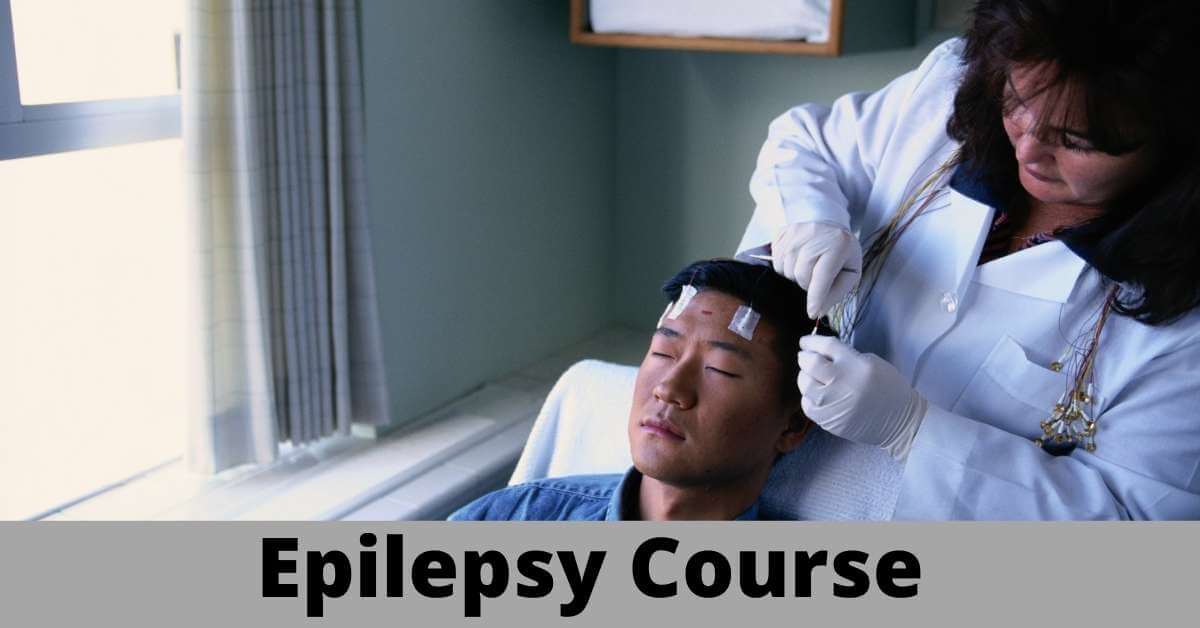Definition
Epilepsy is a neurological disorder that produces recurring, spontaneous seizures. A seizure is a burst of aberrant electrical activity in your brain that occurs suddenly. When you experience two or more seizures without a known cause, your doctor will diagnose you with epilepsy.
Best course for Epilepsy training
Nursing Revalidation provides the best course for Epilepsy Awareness.
This course will give you an overview of epilepsy. Epilepsy course lists the methods of diagnosis, what a seizure is and how the brain can be affected. It will introduce some possible seizure triggers and describe what to do when someone has a seizure. It will also discuss some of the treatments offered to people with epilepsy and provide practical advice on what you can do if you witness someone having a seizure.
What are the causes and symptoms of epilepsy?
Causes
In nearly half of those who suffer from epilepsy, there is no known cause. The condition in the other half can be attributed to several variables, including:
- Genetic factors: Some forms of epilepsy, which are classified according to the type of seizure, or the portion of the brain affected, run in families. There is most certainly a hereditary component in these situations. Some types of epilepsy have been related to specific genes, although genes are only one element of the epileptic puzzle for most people. Certain genes may make a person more susceptible to seizure-inducing environmental factors.
- Head Trauma: Epilepsy can be caused by head trauma from a vehicle accident or another traumatic injury.
- Brain abnormalities: Epilepsy can be caused by brain abnormalities such as brain tumors or vascular malformations such as arteriovenous malformations (AVMs) and cavernous malformations. Stroke is the most common cause of epilepsy in people over the age of 35.
- Infections: Epilepsy can be caused by meningitis, HIV, viral encephalitis, and various parasite illnesses.
- Prenatal injury: Babies are vulnerable to brain injury before birth, which can be caused by a variety of circumstances such as the mother’s infection, poor nutrition, or oxygen deficiency. Epilepsy or cerebral palsy can be caused by brain injury.
- Developmental disorders: Epilepsy and developmental disorders like autism are sometimes associated with each other.
Symptoms
Seizures can disrupt any process that your brain coordinates. The most common symptoms of epilepsy are the following:
- Temporary confusion
- A staring spell
- Uncontrollable jerking motions of the arms and legs are some of the indications and symptoms of a seizure
- Stiff muscles
- Psychological symptoms such as fear, or worry
The severity of the symptoms varies based on the type of seizure. A person with epilepsy, in most situations, experiences the same sort of seizure every time, therefore the symptoms will be consistent from episode to episode.
Recommendations
Most persons with epilepsy can reduce or eliminate their seizures with care. The care includes:
- Anti-epileptic drugs (AEDs)
- Surgery to remove a small section of the brain that is causing the seizures
- involves implanting a tiny electrical device inside the body to aid in seizure management.
- A type of diet (ketogenic diet) that can aid in seizure management
Being a healthcare professional, you should provide effective care to seizure patients. You should know about the documentation and expected behavioral changes. To learn all this, join an epilepsy awareness course on nursing revalidation and pacify your healthcare journey.
Epilepsy awareness day
International Epilepsy Awareness Day also known as Purple day is celebrated annually on Saturday 26th March 2022. Together we can make it the biggest yet! Purple Day is THE day to get people talking about epilepsy, bust the myths about seizures, and raise funds so children and young people can feel safe, supported, and included.
The bottom line
In the epilepsy course, you will learn about which aberrant brain activity results in seizures or episodes of strange behavior, sensations, and occasionally loss of awareness. Epilepsy is a central nervous system (neurological) illness.

